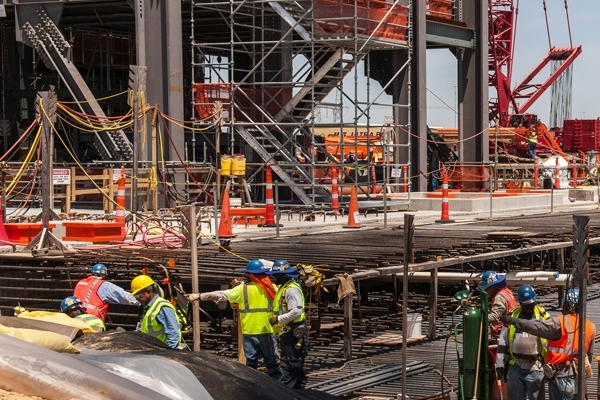



|
Tweet
Pin
It
|
Nuclear engineering is the branch of engineering concerned with the design, construction and operation of nuclear reactors. It is a specialist engineering field focusing upon the fission and fusion of atomic nuclei. To be more specific, Nuclear engineering is the application of science to the generation and control of nuclear energy. These processes include the release, control and utilization of nuclear energy and the production and use of radiation and radioactive materials. Nuclear engineering is an engineering discipline that studies radioactive materials and radiation for use in a variety of fields, such as power, medicine and manufacturing. This engineering field is based on fundamental principles of physics and mathematics that describe nuclear interactions and the transport of neutrons and gamma rays.
Those who work in this field of engineering are called Nuclear engineers. A nuclear engineer is a professional who specializes in the design, construction and operation of nuclear reactors. They determine how radiation and radioactive materials can be used for industrial, medical and scientific purposes. Nuclear engineers design and create the processes, instrumentation, equipment and systems which contain nuclear materials used in multiple industries. They also study the application of physics in other fields, such as the use of radiation in diagnosis and treatment, heat and thermodynamics transport, nuclear fuel, radioactive waste disposal, and nuclear proliferation.
Nuclear engineers generally work, directly or indirectly, in the nuclear power industry or for national laboratories. Their work place includes offices, research laboratories, power plant control centers, nuclear-powered ships and submarines. They utilize their knowledge in research or experiments that can lead to medical or engineering outcomes. A nuclear engineer helps conduct research on nuclear reactions. During the construction of a nuclear power plant, nuclear engineers oversee the nuclear reactor being installed and ensure the nuclear fuel is being loaded properly. Some, nuclear engineers work chiefly in design engineering. They often design and develop new devices used to generate nuclear power.
The job of a nuclear engineer varies widely by type of industry they work in, but in general they solve engineering problems related to nuclear energy. Most nuclear engineers work in office environments, but some work in power plants. An engineer at a power plant or consulting firm is more likely to work overtime than one who does research in an office or work in government service.
Educational
To enter in the field of nuclear engineering, one needs a minimum qualification of bachelors degree in nuclear engineering. Those with 10 + 2 level educational qualification or equivalent with Physics, Chemistry, Mathematics and English are eligible to pursue undergraduate degree program in engineering. After 10+2 they have to qualify the engineering entrance test. For high designation jobs Masters degree is required. One has to clear Graduate Aptitude Test in Engineering (GATE) to seek admission for 2-year M.Tech program in nuclear engineering. There are also doctorate programs (Ph.D) designed for students interested in entering nuclear engineering research or academia.
Baba Atomic Research Center (BARC) provides one-year training programme in nuclear energy, following which students are absorbed within the centre itself. Graduates can apply for this programme by writing the GATE exam.
Personal Skills
Good aptitude and analytical ability are the necessary skills required for Nuclear engineers. They should have creative and inquisitive minds. Nuclear engineers must possess exceptional math skills, high aptitude, interest in technology and science. They must have interest in research works also. Nuclear engineers must have excellent communication skills and be able to work as part of a team. They must possess good organizational and planning abilities. Besides these, good patience and hard working nature are the significant qualities needed by them.
The field of nuclear engineering in India has good career potential for bright and highly qualified engineers in the Atomic Energy and Defence Sectors, Nuclear Medicine and Research and more particularly in the field of civil nuclear energy.
Nuclear engineers work in laboratories, nuclear plants, universities and government agencies. The government employs nuclear engineers for military research, development of proper waste disposal methods and studying effects of radiation to the environment and living things. In the medical sector, nuclear engineers are engaged in scientific research for medical diagnostic and treatment techniques using radiation. In academics, nuclear engineers find employment as lectures, and professors and actively contribute to nuclear researches. Others prefer to work in on-site engineering or construction projects. They may also work alongside other scientists in developing equipments that generate nuclear power. Sometimes, nuclear engineers serve as consultants in projects that involve nuclear energy. Besides, nuclear engineers can also pick up management or administration as a career option.
In India main recruiter in this field is the Department of Atomic Energy, government of India which include Baba Atomic Research Center (BARC), Trombay; Indira Gandhi Centre for Atomic Research (IGCAR), Kalpakkam; Atomic Minerals Directorate for Exploration and Research (Hyderabad) and Nuclear Power Corporation of India Limited (NPCIL), Mumbai.
Nuclear engineering is considered as one of the highly paid job in the engineering field. The earnings of nuclear engineers gradually increase with higher qualification and experience as in the case of other jobs.
A graduate in nuclear engineering normally earns Rs 25,000 – Rs 30,000 in the beginning of his career in private sector. This can even go high as Rs 1,00,000 with experience and masters degree. Whereas in Public sector pay scales are less, but various other benefits like accommodation, travel allowance, dearness allowance are also offered. The pay scale of nuclear engineers abroad is, however high.
In India
To get the list of institutes click on the course name
» Certificate in Nuclear Science and Engineering
Institutes abroad
» Canada
» USA
Tags
engineering career
Find it Useful ? Help Others by Sharing Online
Comments and Discussions |
Related
Career Options
|
|||
|
|